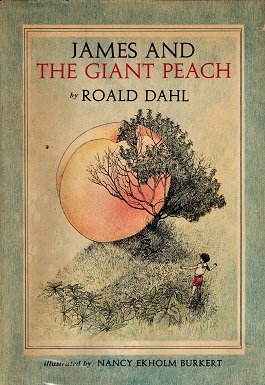Doris Lessing
Explore the life and literary career of Doris Lessing, renowned British-Zimbabwean author, through this detailed timeline. From her birth in 1919 in Persia, her upbringing in Southern Rhodesia, to her influential works such as 'The Golden Notebook', and her receipt of the Nobel Prize in Literature in 2007, discover the milestones that shaped her impactful journey in the literary world.
Birth of Doris Lessing
Doris Lessing was born on October 22, 1919, in Kermanshah, Persia (now Iran). Her birth name was Doris May Tayler. Lessing became a prominent writer known for her works in various genres, including novels, short stories, and essays. She spent her early childhood in Persia, where her father worked as a bank official for the Imperial Bank of Persia.
Publication of 'The Grass is Singing'
Doris Lessing's first novel, 'The Grass is Singing', was published in 1949. The novel is set in Southern Rhodesia (now Zimbabwe), where Lessing lived for a significant portion of her life. It examines the racial tensions in colonial Africa through the story of a white farm wife and her African servant. The book received critical acclaim and established Lessing's reputation as an important voice in literature.
Doris Lessing Joins the Communist Party
In 1950, Doris Lessing joined the Communist Party of Great Britain. Her involvement with communism significantly influenced her literary work and social views. She sought to explore issues of social justice and equality through her writing. However, Lessing later became disillusioned with communism and criticized its dogmatism in her works. Her political engagement added depth to her exploration of ideological and philosophical themes.
Publication of 'The Golden Notebook'
Doris Lessing published 'The Golden Notebook' in 1962, which became one of her most famous and influential works. The novel is considered a landmark in feminist literature, exploring themes of mental and societal breakdown. It features a writer named Anna Wulf and the notebooks she keeps as she tries to bring together the various strands of her life. 'The Golden Notebook' was praised for its innovation, depth, and social insight.
Publication of 'Shikasta'
Doris Lessing published 'Shikasta' in 1979, the first book in her 'Canopus in Argos: Archives' series. This science fiction novel explores the history and fate of a planet similar to Earth. Through its allegorical narrative, 'Shikasta' addresses themes of colonialism, power, and spirituality. The novel marked a departure from Lessing's earlier realist works and demonstrated her versatility as a writer.
Publication of 'The Good Terrorist'
In 1985, Doris Lessing published 'The Good Terrorist', a novel that explores the lives of a group of political radicals who squat in a London house and plan acts of terrorism. The book examines themes of ideology, disillusionment, and the personal dynamics within political movements. 'The Good Terrorist' was shortlisted for the Booker Prize and is noted for its characterization and political commentary.
Appointment as a Companion of Honour
In 1999, Doris Lessing was named a Companion of Honour by the British government for her services to literature. The appointment is an exclusive honour, granted to only a limited number of individuals who have made outstanding contributions in their fields. Lessing's extensive body of work and her influence on literature and society were significant factors in her receiving this prestigious recognition.
Publication of 'The Sweetest Dream'
Doris Lessing released 'The Sweetest Dream' in 2001, a semi-autobiographical novel that blends fiction with elements of Lessing's own life. The story covers several decades and depicts the lives and aspirations of a family in post-war Britain. It contrasts and examines the idealism of the 1960s with the reality of later years. The novel received praise for its narrative scope and character depth.
Doris Lessing Wins Nobel Prize in Literature
On October 11, 2007, Doris Lessing was awarded the Nobel Prize in Literature. The Nobel Committee recognized her as an "epicist of the female experience, who with scepticism, fire and visionary power has subjected a divided civilisation to scrutiny." At 87 years old, she became the oldest recipient of the prize at the time and only the 11th woman to win the Nobel Prize in Literature.
Death of Doris Lessing
Doris Lessing passed away on November 17, 2013, in London at the age of 94. She left behind a profound legacy with a career spanning over 60 years, producing dozens of novels, essays, and works of non-fiction. Her writings covered a wide range of themes, including feminism, political ideologies, and the human psyche. She remains a towering figure in modern literature with numerous awards and recognitions celebrating her work.
Frequently asked questions about Doris Lessing
Discover commonly asked questions regarding Doris Lessing. If there are any questions we may have overlooked, please let us know.
When did Doris Lessing pass away?
When did Doris Lessing win the Nobel Prize in Literature?
When was Doris Lessing born?
What is Doris Lessing best known for?
Related timelines
More timelines connected to Doris Lessing







